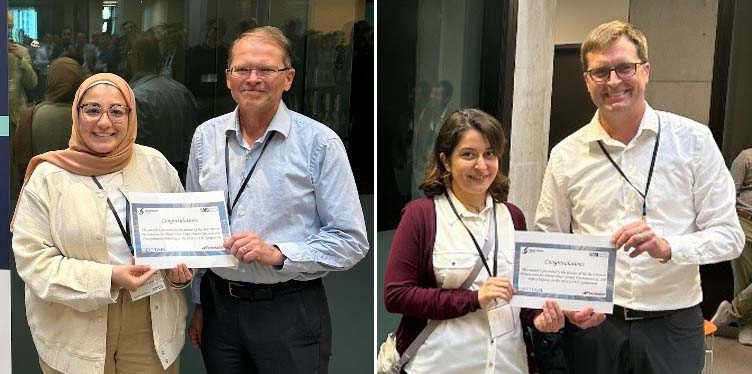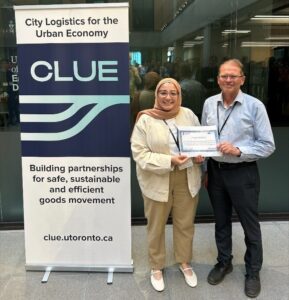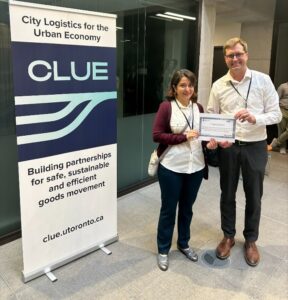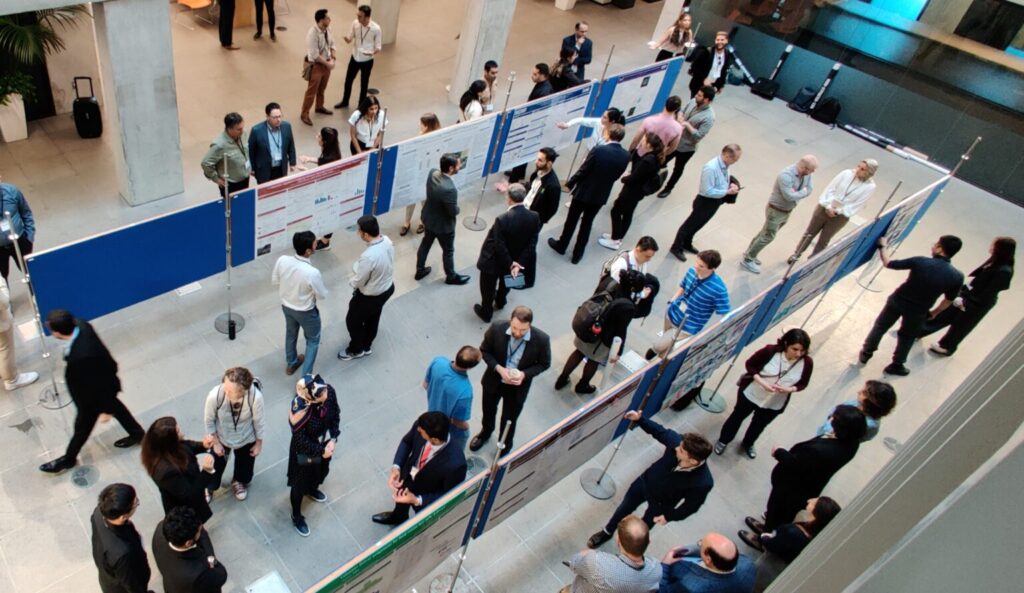
Two CivMin graduate students have won for their individual poster and presentation at the third annual symposium for City Logistics for the Urban Economy (CLUE). Farah Ghizzawi and Sara Torbatian, both PhD students in the Department of Civil & Mineral Engineering at the University of Toronto, were recognized as the top presenter for their respective theme.

Ghizzawi, studying under the supervision of Prof. Matthew Roorda, was the best presenter for her theme, Data-Driven Methods and Transportation Planning with poster title “Developing a parking location choice model using the fusion of limited data: The case of commercial vehicles in Toronto”. The poster presents the research framework of developing a parking location choice model for commercial vehicles using the fusion of limited data. The research is intended to show that data fusion could be a promising approach to tackle data challenges in modelling freight travel activity, specifically parking patterns. Various data sources are integrated to identify factors influencing parking decisions. GPS data is utilized to map travel routes, allowing us to deduce stop locations, durations, frequencies, and trip attributes. Parking location characteristics are inferred from data detailing the features of parking infrastructure. Industry sector information is also incorporated to infer commodity and/or services typologies. She joined Professor Matthew J. Roorda’s team at the University of Toronto in September 2020. Her research focuses on modelling the parking choice of urban freight vehicles and evaluating parking management policies. Farah worked as a transport modeller for six years in a regional engineering consulting firm based in Beirut. Farah has a bachelor’s degree in civil engineering and a master’s degree in engineering management from the American University of Beirut.

Torbatian, studying under the supervision of Prof. Marianne Hatzopoulou was the best presenter for her theme, Social, Environmental, and Safety Impacts with poster title “Implications of Freight Electrification Scenarios for GHG Emissions, Air Quality Health and Environmental Justice”. This study explores the potential co-benefits associated with electrification, one important pathway toward decarbonization of freight. In this study, a detailed assessment of freight electrification scenarios (including light, medium, and heavy-duty trucks) was conducted from different perspectives including air quality, health, and environmental justice, using the Greater Toronto and Hamilton Area (GTHA) as a testbed.
CLUE hosted a vibrant knowledge café and poster competition to showcase the past year’s research. This symposium, organized with the Smart Freight Centre—a collaboration of researchers from McMaster University, Toronto Metropolitan University, University of Toronto, York University, and stakeholders from the Greater Toronto and Hamilton Area (GTHA)—attracted over 70 participants from academic, the public sector, and the private sector.
The symposium featured two sessions with four poster themes. Each theme had ten posters, making it 40 posters in total. The themes were:
- Electrification and Emissions. Click here to view the posters of this theme
- Data-Driven Methods and Transportation Planning. Click here to view the posters of this theme
- Social, Environmental, and Safety Impacts. Click here to view the posters of this theme
- New Technologies and Operational Models. Click here to view the posters of this theme
